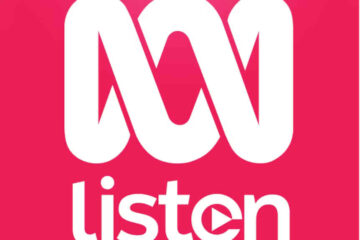Gershon Baskin shares with Mick Krever of CNN that there is no military victory over Hamas, that should be clear to all. The are no winners in this war. We have all lost.
Hamas on Saturday released three Israeli hostages from captivity in two orderly handover ceremonies that stood in marked contrast to chaotic scenes earlier this week.
After 484 days in Gaza, Keith Siegel, Yarden Bibas, and Ofer Kalderon returned to Israeli soil.
Stepping off a military helicopter just outside Tel Aviv, Kalderon, 54 – who also holds French citizenship – stopped to wave to friends who had gathered outside Shiba Hospital, smiling and yelling, “I love you!” In a tearful embrace in a hospital room, his four children wept as they pulled him in and stroked his hair.
“It’s over, Dad,” his daughter said. “Now you’re with us.”
In exchange, Israel released 183 Palestinian prisoners, of whom 18 were serving life sentences. The majority had been detained in Gaza since October 7 and had no public charges against them.
And for the first time since it was captured by Israeli forces in May 2024, the crucial Rafah crossing between Gaza and Egypt opened to allow a group of Palestinian civilians, mostly children, to be evacuated for medical treatment.
It is the fourth hostage exchange since a ceasefire went into effect on January 19. Under an agreement signed in Qatar last month, negotiations to begin a second phase are supposed to begin on Monday.
There are still 79 people taken on October 7, 2023, left in Gaza. Only 20 of those are scheduled to come out during this phase of the truce, of whom eight are said to be dead.
Siegel, 65, who has long lived in Israel, is the first American released since the ceasefire that began on January 19. Amid the rubble of Gaza City’s port, he appeared frail as militants walked him to a car. He waved briefly from a stage that had been set up. His wife Aviva, watching a feed of him being freed in Gaza, exclaimed, “Here he is, here he is, Keith!” as she embraced their son Shai.
Bibas’s children have become among the most prominent hostages held by Hamas. His son Kfir was just nine months when he was abducted, the youngest hostage taken on October 7, 2023. Kfir, his brother Ariel, and their mother Shiri have not been seen since they were taken captive. Hamas claimed in November 2023 that they were killed in an Israeli airstrike. Israel never confirmed their deaths.
Yarden Bibas’ reunion with his sister Ofri and father Eli was decidedly more somber. Meeting at Re’im Military Base in southern Israel, the three held each other in a deep embrace, and wept.
“There are no words to describe the relief of holding Yarden in our hands, embracing him, and hearing his voice,” the Bibas family said in statement, adding they “continue with hope” for the return of his wife and sons.
The release of the three men Saturday was particularly weighty in Israel because of the disorderly scenes that surrounded the release of two Israeli and five Thai hostages in Khan Younis, in southern Gaza, on Thursday. Thousands of Palestinian jostled the two Israelis as they were escorted to Red Cross vehicles.
Prime Minister Benjamin Netanyahu demanded assurances from the intermediaries who negotiated the ceasefire that the scenes would not be repeated.
The message seems to have been received. On a bright Saturday morning, masked militants from Hamas’ Qassam Brigades took to stages adorned with anti-Israel banners, honoring their fallen military commander Muhammad Al-Masri, better known as Muhammad Al-Deif, whose assassination by Israel last July was acknowledged by Hamas this week.
Representatives from the International Committee for the Red Cross signed release papers provided by the Hamas militants, and the hostages were briefly paraded on stage and made to wave to the crowd before being whisked away to be transferred to the Israeli military.
The release of Palestinian prisoners from Israel’s Ofer Prison in the occupied West Bank also brought jubilation to crowds who gathered for their release in Ramallah. Huge crowds swarmed a Red Cross bus as freed prisoners draped in keffiyehs floated into the arms of supporters.
Among the prisoners released was Mohammad El-Halabi, the director of the Gaza branch of World Vision, a US-based humanitarian organization. El-Halabi was arrested in 2016, and later found guilty of diverting money from humanitarian projects to Hamas’ military wing. World Vision denied the allegations at the time and said the legal process was unfair.
Following his release Saturday, El-Halabi told CNN that he had lost 40 kilograms (88 lb) of weight in detention since October 7.
“The food was not even sufficient for a small child – it was deliberately inadequate. The quality was also terrible… there was a famine inside the prison,” he told CNN, adding that dozens of prisoners fainted every day due to malnutrition.
“Thank God I got out of prison,” he said.
A number of those released were immediately transferred to hospitals in Ramallah due to their health condition, according to the Palestinian Prisoners Media office.
“Hamas got the message from Israel through Qatar to avoid the chaos we witnessed last Thursday,” Gershon Baskin, a veteran Israeli negotiator who is often in touch with Palestinian colleagues, said in a statement. “Hamas may be able to make a strong show of their control, but the people of Gaza have witnessed the destruction all around them and hold Hamas responsible, along with Israel of course.”
“There is no military victory over Hamas, that should be clear to all. The are no winners in this war. We have all lost,” Baskin added.


